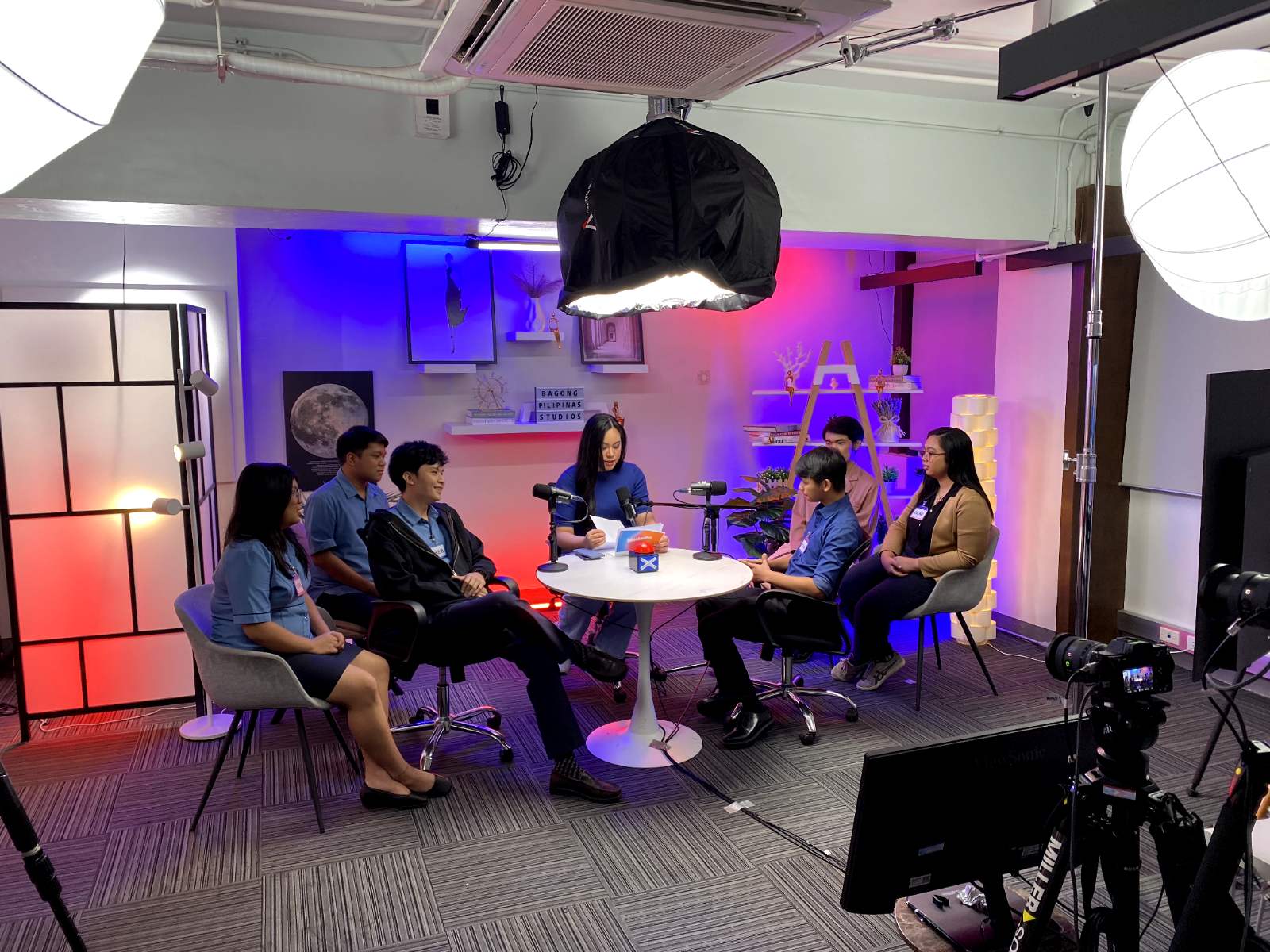
By M-Jay Alavera, PTV Public Affairs intern
Jose Rizal once said, “Kabataan ang pag-asa ng bayan.”
However, today’s headlines are filled with stories of crimes committed by young people themselves. From petty theft to more serious offenses, the involvement of minors in criminal activity has sparked widespread concern—and controversy.
This pressing issue is the focal topic of Thursday’s episode of Iskoolmates, inviting students from the Polytechnic University of the Philippines (PUP) and the National University (NU) to engage in a debate on the proposed legislation to lower the minimum age of criminal liability for heinous crimes to 10 years old.
Representing the PUP School of Debaters are Yuan, Dio, and Gene, while the NU Debate Society is represented by Arem, Jaryll, and Leira.

Children are Victims
The discussion started with the question: Dapat bang ibaba ang criminal liability for heinous crime sa 10 years old?
With this question, Yuan from PUP strongly disagreed with the proposal, stressing that children are victims themselves.
“They might be the ones committing this crime, but at the end of the day, they’re just victims of circumstances,” he said.
Arem agreed but raised a different perspective, pointing out society’s view of prisons.
“We see prison as a cube to punish people, and if we lower the liability, I think prison as a whole will inevitably change because it will not cater to the adults anymore,” he stated.
As the discussion continued, Yuan stressed that we should not look at kids like adults. He argues that, “If you look at the children, they do not have the same mental capacity to discern what is right from wrong the same way an adult would be; that is a consensus for this debate and scientifically proven.”
Arem, however, argued that it is not about punishment but accountability. “What we are trying to say is that we have to live in a society in which we see prison for children as a way to teach them accountability and liability. Not in a bad way, but in a reforming and educated way.”

Accountability vs. Punishment
The debate deepened when the host asked the question: “Paano kung ang isang bata ang siyang nag-commit ng krimen—how should they be dealt with?”
Gene reiterated Yuan’s earlier point, saying that children under 10 cannot discern right from wrong in the same way older teenagers, like 15-year-olds, can.
But Jaryll emphasized that heinous crimes cannot be taken lightly. “Heinous crime is non-negotiable. It is an extent of violent crime that we really need to fix. If the only answer we give is ‘they are kids,’ how can we address that behavior? How can we make them realize that actions have repercussions?”

The Global Standard
The discussion also opened up to whether the Philippines should follow global practices or chart its own path.
Gene pointed out structural limitations in the country, noting that other countries have “systems that are functional to handle children who need to be placed in juvenile facilities.”
“But in the Philippines, structurally, we don’t have that kind of system. That’s why right now, we cannot implement it unless we change the system.”
Jaryll added that while reforms may be slow, awareness and prevention are already taking place.
“Most of the information we have online is intertwined, so people inherently understand crime. There is a growing standard and trend. At least on our part, we are already trying to fix the system—not because it is the biggest problem at the moment, but because we want to be more retrospective, to look into the future and prevent these things from happening.”

Education matters
With these points in mind, the discussion shifted to a bigger question: Instead of lowering the age of criminal liability, where should the government invest more—child protection, education, or family support?
Both Leira and Dio agreed on one answer: education.
Leira argued that education creates awareness and shapes values. “If you educate the children, it will come naturally na magkakaroon sila ng perspective of what is right and what is wrong, especially in heinous crimes,” she said.
Dio supported this, adding that incarceration is more costly than strengthening the education system. “When we put children in prison, we deny them opportunities. But if we invest in education and rehabilitation, we protect them and society in the long run,” he explained.
Leira noted that accountability should still apply to both adults and children, especially in cases of heinous crimes. But Deo countered, “It’s problematic to say they should be treated the same. Children are still forming, while adults already have a life. The law should not be symmetrical; it is meant to be wise.”

In the end, the episode shows that while opinions differ on whether to lower the age of criminal liability, everyone agrees on one point: children should not simply be seen as offenders but as individuals in need of guidance.
The debate highlighted a balance between accountability and compassion—where punishment alone may not be enough or worse than the crime committed, and prevention through education and systemic reform could be the wiser path.
This leads us to a question: How do we protect society while also ensuring that every child, no matter their circumstances, has a fair chance to learn, grow, and choose a better future?
Watch the full episode of Iskoolmates:
-bjlc/jpv
